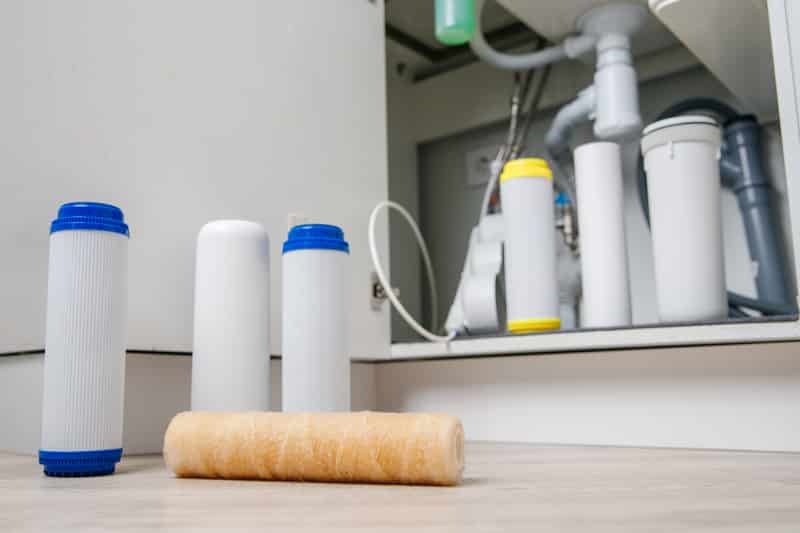
The reverse osmosis water systems have become the primary choice of many households as it promises access to filtered and clean water. Since there are multiple water systems available in the market, people have to consider the outcome to make the right choice. One of the most important factors is smell. This is because many people feel that reverse osmosis water tastes really bad. So, if you have had the same confusion, let’s see if it’s true or not.
Does Reverse Osmosis Water Taste Bad?
It goes without saying that there are hundreds of reverse osmosis drinking water plants available on the market, and all of them are designed with different types of filters. These filters are chosen according to which contaminants you need to filter out from the water supply. Similarly, which type of filter is being used in the water system can directly impact the flavor and odor of the water.
For instance, the water extracted from the well tends to have a higher level of sediments in it, which is why a sediment filter is used. On the other hand, municipal water tends to have chlorine for filtering the water, but it can contribute to bad taste. For this reason, a carbon pre-filter is used in the reverse osmosis water systems to make sure the chlorine is removed, and the water’s taste is enhanced.
At this point, it’s pretty evident that reverse osmosis water does not have a bad flavor, and if you can taste something bad, there are high chances that the water system is not working bad. So, in the section below, we are sharing some solutions that you can try to enjoy clean and regular water flavor.
1. Metals In The Water
When the bad taste in water has metallic hints, there are high chances that the metal compounds of the tap water have not been removed. It can be easily fixed by using the pre-water filter as it has the capacity to catch the impurities and metals before they are impregnated into the water system. On the other hand, if you are already using the pre-filter, it’s likely that the filter is clogged or torn. So, check the filter and make sure you replace it (never reuse the filter).
2. Storage Container
Another reason behind the bad taste in water is the storage container. Keep in mind that you should use food-grade plastic bottles for storing reverse osmosis water. However, if you store the water in these bottles for too long, they end up developing a weird smell. In fact, the plastic smell of the bottles will start leaching into the water.
The solution is to discard the smelly water and use new plastic bottles for storing the water. For future reference, you should discard the plastic water bottles after every three months, particularly if you are using the plastic bottles. In fact, you can also switch to stainless steel bottles.
3. Water Supply
When it comes down to the reverse osmosis water systems, they have to be connected with the water supply to make sure the contaminants and impurities are properly cleared. However, which water supply you are using can also impact the overall flavor of the water. The experts suggest using clean and low-mineral water as it does not have many chemicals and organic salt, promising better flavor.
4. Filters
There are times when users complain about bad taste in RO water after they change the water filter. Honestly, the water flavor depends on how long you have used it for. This is because the clogged filters are not unable to purify the water, and the natural chemical components of the main water supply won’t be eliminated. For this reason, you should change the filters regularly to ensure you get the best tasting and fully filtered water. In addition to this, when you change the water filters, make sure that you are using high-quality filters.
On the other hand, if your RO water seems very salty, it could be because of magnesium breakdown in water. Magnesium breaks down into bicarbonate and hydrogen ions, which results in a salty flavor. In that case, you can opt for a resin filter as it eliminates saltiness from the water to make it suitable for drinking purposes.